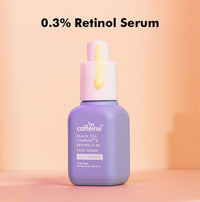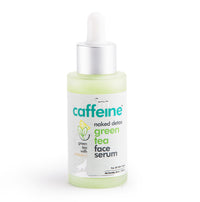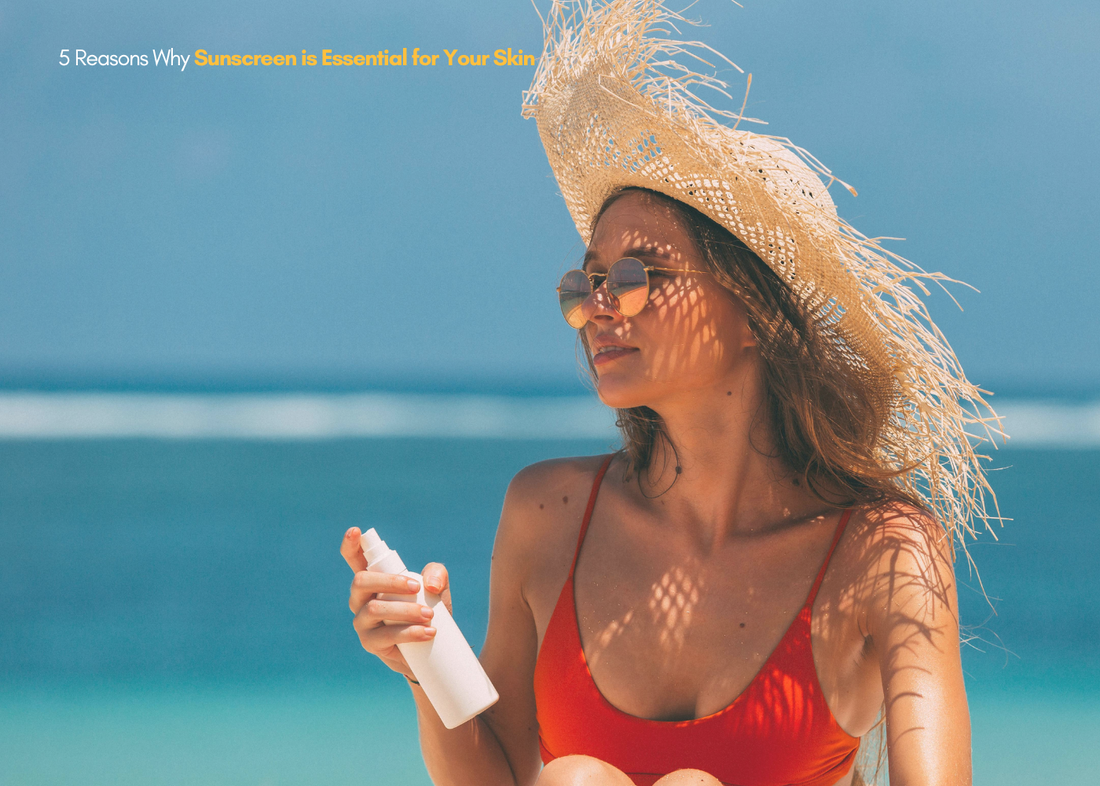Welcome to a practical guide that explains why sunscreen must be a part of your everyday routine. Daily sun care plays a major role in ensuring long-term skin protection and maintaining an even skin tone.
Regular application of sunscreen offers notable sunscreen benefits while forming a solid skincare routine that keeps your skin safe from harsh environmental factors. These insights are designed for anyone curious about practical sun care, regardless of your background in skincare.
Understanding the Importance of Sunscreen in Daily Skincare
Daily application of sunscreen is crucial for maintaining clear and healthy skin. Regular use not only offers vital skin protection from harmful UV rays but also enhances the overall effectiveness of your skincare routine. Sunscreen shields the skin against damage that can lead to dark spots, premature wrinkles, and even serious conditions over time. A focus on sunscreen benefits ensures that every step in your skincare regimen adds up to healthier and more resilient skin.
Top 5 Reasons Why Sunscreen Is Essential for Your Skin
1. Protection Against Harmful UV Rays
Exposure to sunlight leads to more than just a pleasant warmth. Prolonged contact with the sun’s rays can seriously affect the skin by causing burns, inflammation, and cellular damage. Excess UV rays penetrate the skin layers, leading to dehydration and accelerated damage.
How UV Radiation Affects the Skin:
- UV rays can weaken collagen and reduce elasticity.
- Increased exposure is linked with broken skin cells that lead to imperfections.
The Role of Sunscreen in Blocking UVA and UVB Rays:
- Formulations with high SPF create a barrier against UVA rays that penetrate deeply.
- Sunscreens that contain physical blockers like zinc oxide provide protection from UVB rays.
Products such as Sun Bath SPF Body Sunscreen 80 PA Spray 100ml offer robust defense. Regular use of sunscreen is central to achieving long-term skin protection. Incorporating products with proven sunscreen benefits in your skincare routine helps maintain skin health while countering the effects of UV rays.
2. Prevention of Skin Cancer
Continuous sun exposure increases risks for various skin cancers, making sun protection a health priority. Excessive UV rays damage DNA in skin cells, raising the risk over time.
Evidence shows that routine use of sunscreen helps lower the incidence of skin cancer, especially when integrated with other protective measures.
Link Between Sun Exposure and Skin Cancer:
- Prolonged UV radiation can cause mutations in skin cells that lead to cancer.
- Studies indicate higher skin cancer rates in regions with intense sun exposure.
How Sunscreen Prevents Skin Cancer:
- Regular reapplication creates a physical shield against harmful rays.
- Products such as Coffee Sunscreen Lotion SPF 50 PA help minimize direct UV exposure and reduce cancer risks.
Including sunscreen in daily care is an essential step toward long-term skin protection and overall health. Consistent application ensures that your skin receives the diligent care it deserves.
3. Combating Premature Skin Aging
Sun exposure is one of the leading causes of premature skin aging, often resulting in fine lines and wrinkles. Environmental stress from UV rays breaks down collagen, which is fundamental to maintaining a youthful appearance.
Using sunscreen regularly can preserve skin firmness and delay the visible effects of aging.
Effects of Sun Exposure on Skin Aging (in pointers):
- Decreases collagen production leading to sagging skin.
- Accelerates the appearance of fine lines and dark spots.
- Contributes to uneven skin tone and texture changes.
Sunscreen’s Role in Maintaining Youthful Skin:
- Shields skin from oxidative stress that causes early aging.
- Provides a calming barrier that supports skin integrity over time.
Green Tea Sunscreen SPF 50 PA offers antioxidant-rich ingredients that support skin rejuvenation. A consistent routine enriched with sunscreen benefits retains skin youthfulness.
4. Reduction of Skin Discoloration and Pigmentation
Excess sun exposure is closely related to the appearance of dark spots and uneven pigmentation. Sun-induced discoloration can be frustrating, particularly when it affects overall skin tone balance.
Preventive care with sunscreen minimizes the intensity of pigmentation, offering a more even look.
Causes of Sun-Induced Skin Discoloration (in pointers):
- UV rays trigger melanin overproduction.
- Chronic exposure accelerates the formation of age spots.
- Inflammation from sunburn can lead to post-inflammatory hyperpigmentation.
How Sunscreen Helps in Achieving Even Skin Tone:
- Regular application evens out skin tone over time.
- Reduces the appearance of existing dark spots and prevents new ones.
Use products like Kombucha Hydra Repair Sunscreen SPF 50 PA with Hyaluronic Acid & Ceramide 50 ml to lock in hydration and maintain balanced pigmentation. Routine protection with sunscreen contributes to an even skin tone while boosting overall skin protection against the adverse effects of UV rays.
5. Maintaining Overall Skin Health
Sunscreen is more than a preventive measure; it is an integral part of a complete skincare routine. Its regular use fosters improved skin texture and resilience against external aggressors. Daily inclusion of sunscreen can enhance skin’s natural barrier and support better long-term health.
Sunscreen as a Fundamental Component of Your Skincare Routine:
- Offers consistent protection against physical and environmental stress.
- Contributes to the overall balance and hydration of the skin.
Glow Sun Drops SPF 50 PA bring added radiance while boosting skin protection features. Emphasizing a routine that embraces sunscreen benefits helps maintain a soft, resilient, and healthy appearance.
Choosing the Right Sunscreen for Your Skin
Selecting a sunscreen involves understanding ingredients and SPF levels to meet your specific skin needs. Effective products provide both sunscreen benefits and additional support for a well-rounded skincare routine.
Key Ingredients to Look in Effective Sunscreens
|
Ingredient |
Sun Protection Benefits |
|
Caffeine |
A powerful antioxidant that helps protect against free radical damage caused by UV exposure. Reduces inflammation and prevents premature aging. |
|
Green Tea Extract |
Rich in polyphenols, it provides anti-inflammatory benefits and neutralizes UV-induced oxidative stress, reducing sun damage. |
|
Hyaluronic Acid |
Deeply hydrates the skin and maintains moisture balance, preventing dryness caused by sun exposure. Helps reduce sunburn-related peeling. |
|
Ceramides |
Strengthens the skin’s natural barrier, locking in moisture and preventing environmental damage, including UV-induced dryness. |
|
Niacinamide (Vitamin B3) |
Reduces UV-induced hyperpigmentation, minimizes fine lines, and strengthens the skin barrier against sun damage. |
|
Vitamin E |
Neutralizes free radicals from UV rays, reduces sunburn risk, and helps repair damaged skin cells. |
|
Aloe Vera |
Soothes sunburned skin, reduces inflammation, and provides a cooling effect while boosting skin hydration. |
|
Titanium Dioxide |
A mineral sunscreen agent that reflects and scatters UVA/UVB rays, preventing sunburn and photoaging. |
|
Zinc Oxide |
A broad-spectrum physical sunscreen that sits on the skin’s surface, deflecting UV rays and preventing sun damage. |
Understanding SPF Levels and What They Mean
SPF stands for Sun Protection Factor. Higher SPF levels offer greater protection against UV rays.
- SPF 15 filters out approximately 93% of UVB rays.
- SPF 30 blocks roughly 97% of UVB rays.
- SPF 50 and above provide enhanced protection and are recommended for sensitive or sun-exposed skin types.
A clear understanding of SPF levels assists in selecting a product that fits your daily skincare routine while offering optimal skin protection.
Myths vs. Facts: Common Sunscreen Misconceptions
|
Myth |
Fact |
|
Sunscreen is only needed on sunny days. |
Cloudy days still expose skin to harmful UV rays; consistent use is essential. |
|
Higher SPF always means better protection. |
SPF is only one measure; broad-spectrum coverage is required for complete skin protection. |
|
Sunscreen causes the skin to break out. |
Modern formulations are designed for sensitive and acne-prone skin. |
|
Only fair skin needs sunscreen. |
All skin tones are affected by UV rays; daily application benefits everyone. |
|
Sunscreen is too heavy for everyday use. |
Lightweight, non-greasy formulas now exist, making daily use easy and pleasant. |
Integrating Sunscreen with Other Skincare Products
Smooth incorporation of sunscreen into your daily routine improves its effectiveness. Follow these simple steps for best results:
- Apply a gentle cleanser and follow with your preferred toner.
- Use a serum or moisturizer that suits your skin type.
- Apply sunscreen generously 15–20 minutes before stepping outside.
- Allow a few minutes for the sunscreen to settle before makeup or additional products.
- Reapply every two hours when exposed to direct sunlight.
Conclusion
Sun protection is crucial to maintaining long-term skin health and overall appearance. Incorporating sunscreen into your daily skincare routine not only provides immediate protection but also offers lasting sunscreen benefits by shielding against UV rays. Regular use minimizes the risk of skin cancer, burns, premature aging, and uneven pigmentation. Enjoy improved skin clarity and resilience when selecting products that focus on blocking harmful sunlight.
FAQs
Q1. Why is sunscreen important to skin?
Application of sunscreen reduces direct damage from UV rays and minimizes the risk of premature aging. Regular use contributes directly to lasting skin protection.
Q2. Why is it important to always wear sunscreen?
Wearing sunscreen daily shields skin from harmful UV rays, reducing the risk of sunburn and long-term damage. Consistent use ensures that your skincare routine remains robust.
Q3. Why do humans need sunscreen?
Exposure to UV rays can harm skin cells and lead to dark spots, wrinkles, and cancer. An effective sunscreen boosts your overall skin protection and helps maintain skin health.
Q4. What is SPF level?
SPF stands for Sun Protection Factor, indicating the level of protection from UVB rays. Higher SPF numbers block a greater percentage of harmful rays.
Q5. How does sunscreen protect from skin cancer?
Sunscreen forms a barrier that limits UV radiation penetration and reduces DNA damage in skin cells. Consistent reapplication during sun exposure helps lower cancer risk.












